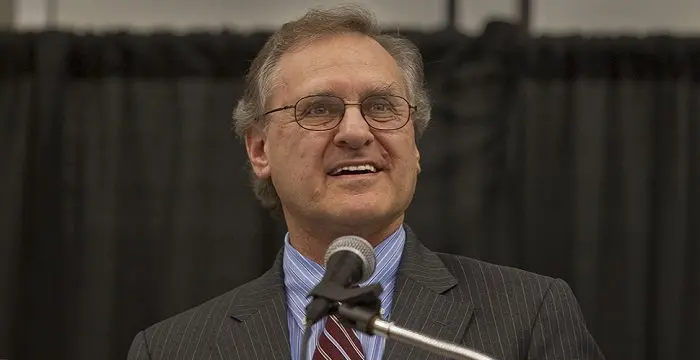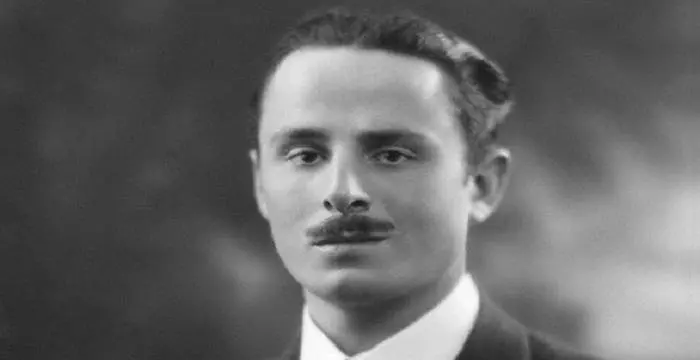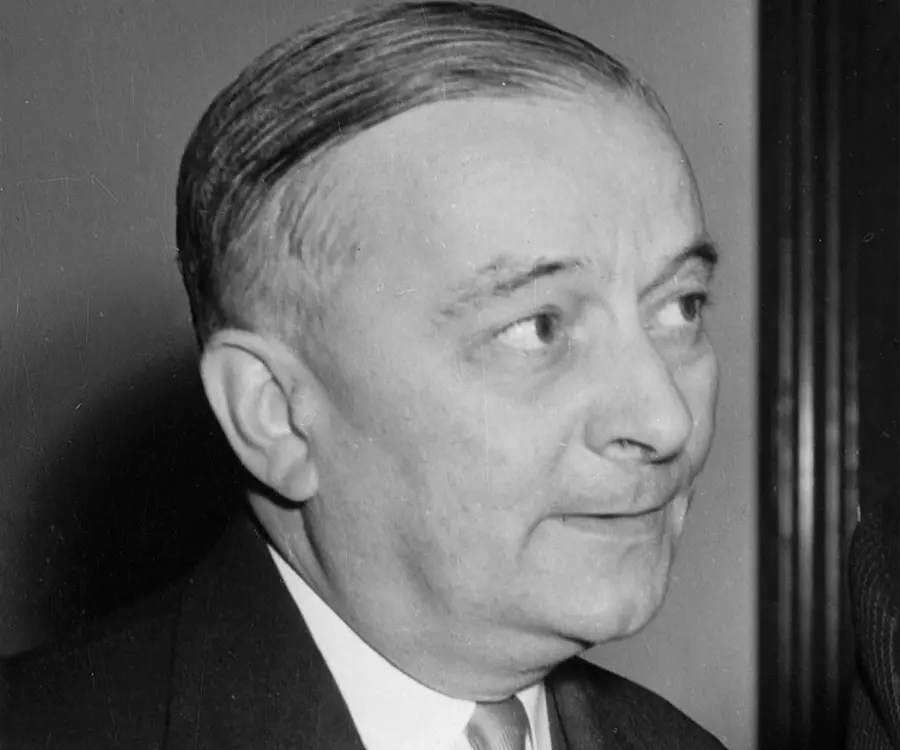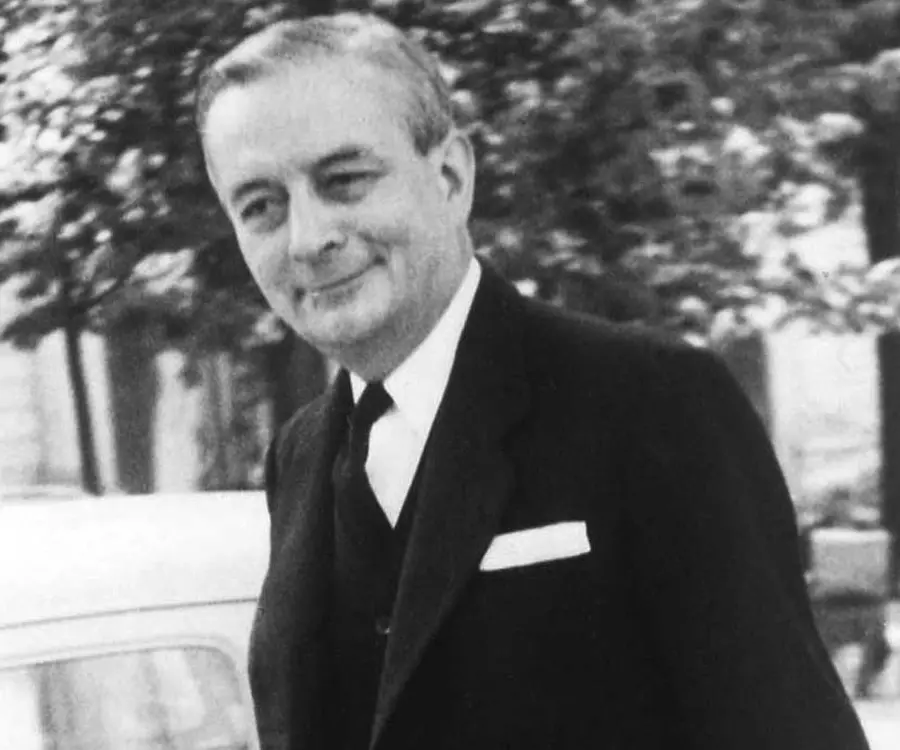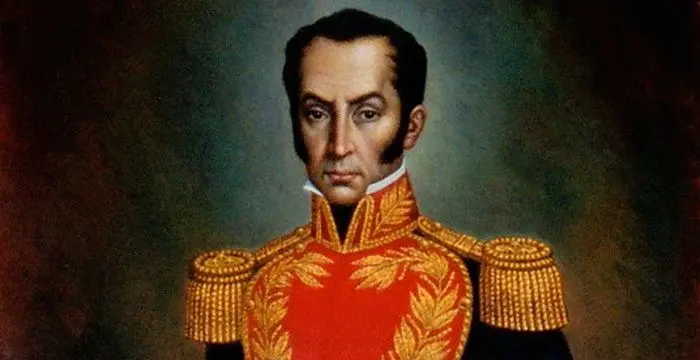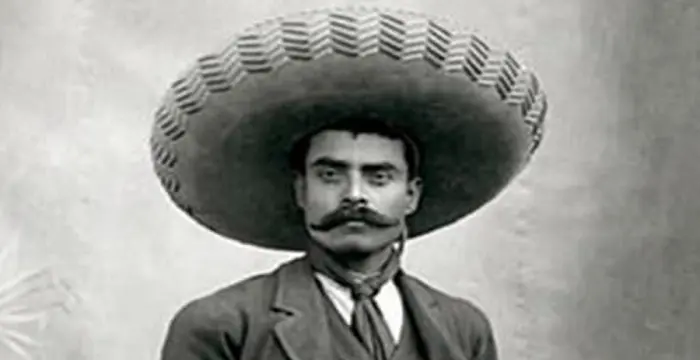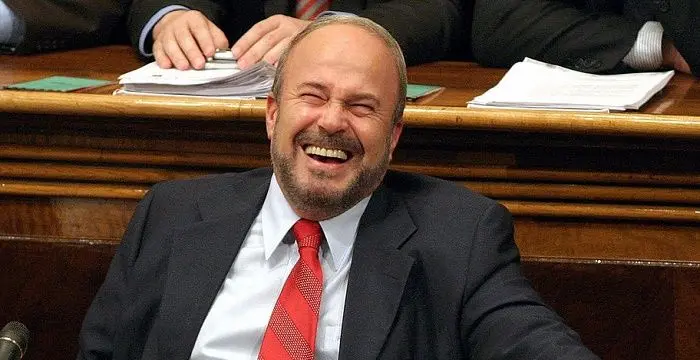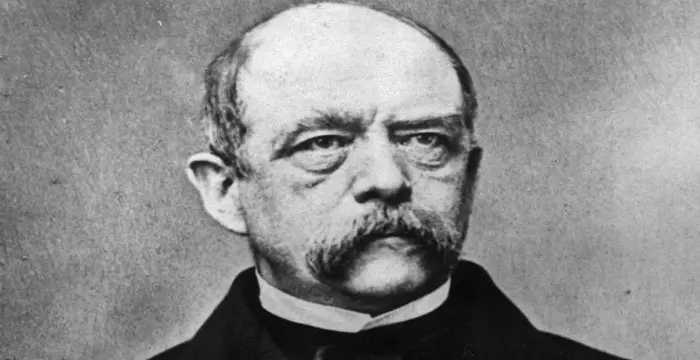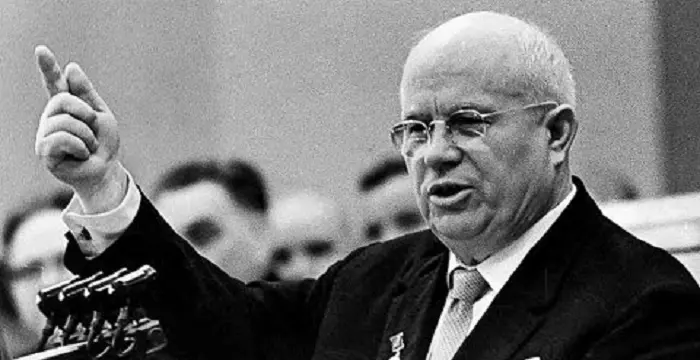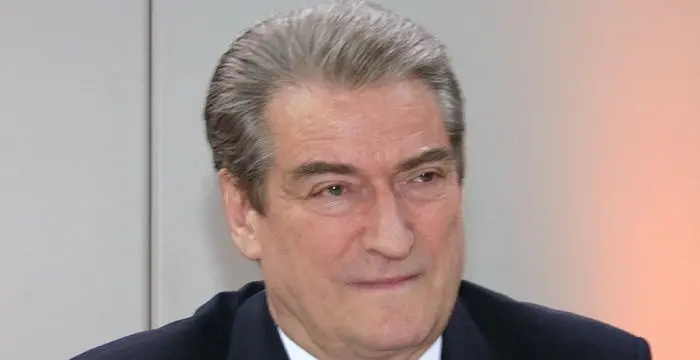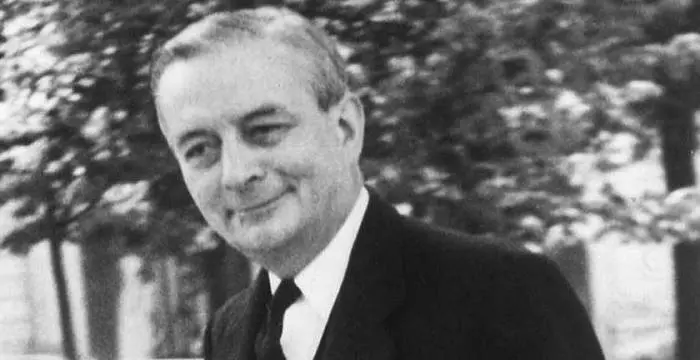
Georges Bidault - Politician, Timeline and Childhood
Georges Bidault's Personal Details
Georges-Augustin Bidault was a French politician who served as the Prime Minister of France twice.
| Information | Detail |
|---|---|
| Birthday | October 5, 1899 |
| Died on | January 27, 1983 |
| Nationality | French |
| Famous | Leaders, Political Leaders, Revolutionaries, Prime Ministers, Politician |
| Known as | Georges-Augustin Bidault |
| Universities |
|
| Founder / Co-Founder |
|
| Birth Place | Moulins, France |
| Religion | Catholicism |
| Gender | Male |
| Sun Sign | Libra |
| Born in | Moulins, France |
| Famous as | French Politician |
| Died at Age | 83 |
// Famous Politician
Sebastian Coe
Sebastian Coe is a British former track and field athlete turned politician. This biography of Sebastian Coe provides detailed information about his childhood, life, achievements, works & timeline.
Stephen Lewis
Stephen Lewis is a Canadian politician, broadcaster, diplomat and professor. This biography profiles his childhood, career, works, life, achievements and timeline.
Oswald Mosley
Sir Oswald Ernald Mosley was a British politician known for his pro-fascist beliefs. This biography profiles his childhood, family, personal life, opinions, career, etc.
Georges Bidault's photo
Who is Georges Bidault?
Georges-Augustin Bidault was a French politician who served as the Prime Minister of France twice. He also served as the foreign minister of France thrice in different governments. He was a leader in the French Resistance during the World War II. He was the face of the resistance when Charles de Gaulle became the president of France after it was liberated from the Germans. After becoming the head of the provisional government he passed important laws related to the compensation packages and pensions for workmen. He initially supported the policies of de Gaulle in governing France but was opposed to the idea of France losing all its colonies. During the later part of his political career, he founded far-right movements which resorted to terrorist activities to prevent the French colonies from gaining independence. He protested against the Algerian policy followed by Charles De Gaulle and had to retire from politics because of this opposition. Though he was awarded two of France’s highest honors, his accomplishments were overshadowed by accusations of conspiracy against the state which forced him to flee France. He could return from exile only after being granted amnesty.
// Famous Leaders
Edi Rama
Edi Rama is the current Prime Minister of Albania. Check out this biography to know about his childhood, life, achievements, works & timeline.
Tecumseh
Tecumseh was a Native American leader of the Shawnee clan. This biography profiles his childhood, life and timeline.
Khalifa bin Zayed Al Nahyan
Sheikh Khalifa bin Zayed Al Nahyan is the current President of the United Arab Emirates (UAE). Check out this biography to know about his birthday, childhood, family life, achievements and fun facts about him.
Childhood & Early Life
Georges Bidault was born on October 5, 1899 in Moilins, Allier, France.
He attended an Italian Jesuit school in his initial days.
He left school to join the French Army for a few years and was sent to Ruhr. He was discharged when Armistice was declared in 1918.
He returned to France and got a degree in history and geography from Sorbonne in 1925.
Career
Georges Bidault became a history teacher in a Paris college in 1931 after getting his degree in history.
In 1932 he founded the ‘Catholic Association of French Youth’ and also a left-wing newspaper named ‘l-Aube’ or ‘The Dawn’.
He started writing a column about foreign affairs which showed his dislike for Facism and Nazism. He wrote this column till 1939.
With the outbreak of World War II he joined the French Army but was captured during the invasion of France in 1940.
He was released in 1941 with other veterans and took up work as a history teacher at Lycee du Parc in Lyon.
He joined the ‘National Council of Resistance’ and became its head in July 1943 when its leader Jean Moulin was captured and killed by the Germans.
In 1944 he was almost captured by the Gestapo in 1944 and evaded arrest narrowly. The same year he founded the ‘Mouvement Republicain Populaire’ or MRP party.
When Charles de Gaulle headed the provisional government in France in 1944, he ppointed Bidault the foreign minister.
In December 1944 he signed the Franco-Soviet Alliance and The United Nations Charter on behalf of his government.
He attended the UN conference held from April to June 1945 as the head of the French delegation where he was able to get a permanent seat for France in the UN Security Council.
On June 19, 1946 he became the head of the provisional government for a few months after the resignation of de Gaulle.
As the head of the provisional government he passed several acts in 1946 which benefitted the French workmen.
Bidault resigned from his position after the National Assembly elections on November 29, 1946.
In 1947 as the foreign minister in Paul Ramadier’s government he supported the expulsion of the Communists from the government and opposed an agreement with Stalin.
In 1948 he negotiated for the formation of a union of western European states which later became known as NATO.
He became the Prime Minister or the ‘President of the Council of Ministers’ of France in 1949 but served in the position for only eight months.
At the end of his tenure he passed a law in February 1950 which legalized the workers right to strike to get their demands fulfilled and fixed the minimum wages for industrial and agricultural workers.
During the period 1950 to 1951 he acted as the ‘Vice President of the Council’ in the Henri Queuille government and as the defense minister in the Rene Pleven and the Edgar Faure governments.
Bidault became the honorary president of the MRP party in 1952.
President Vincent Auriol asked Bidault to form a government on June 1, 1953, but the National Assembly and his own government opposed the motion on June 10, 1953.
He put his name forward as the next presidential candidate in 1953 but after the second round of voting withdrew his name.
He became the Prime Minister of France for the second time in 1958 and pledged his support to de Gaulle for the post of President.
The ‘Algerian war of Independence’ broke out and de Gaulle decided in favor of Algeria’s independence but it was vehemently opposed by Bidault.
In 1961 he formed a far-right paramilitary organization called ‘Organisation de L’Armee Secrete’ or OAS which advocated terrorism to prevent the independence of Algeria.
He was accused of treachery and conspiracy in 1962 and his parliamentary immunity was abolished.
He fled to Brazil and the Belgium where he stayed from 1963 to 1967.
He returned to France in 1968 after an amnesty was granted to him. The same year he founded a far-rightwing movement called ‘Mouvement pour le justice et la liberte’.
He became the honorary president of this party but left active politics soon after.
Awards & Achievements
Georges Bidault was awarded a ‘Companon de la Liberation’ for his role in the Resistance.
He received the ‘Grand Croix de la Legion d’honneur’ for his contributions as a part of the government.
Personal Life & Legacy
He had married Suzanne Bordel in 1945.
Georges Bidault died on January 27, 1983 in Cambo-les-Baines, France.
// Famous Revolutionaries
Tecumseh
Tecumseh was a Native American leader of the Shawnee clan. This biography profiles his childhood, life and timeline.
Simon Bolivar
Simón Bolívar was a Venezuelan military leader who was instrumental in independence of several Latin American countries from the Spanish rule. This biography profiles his childhood, life, achievements and timeline.
Emiliano Zapata
Emiliano Zapata was a Mexican revolutionary leader and one of the most important figures of the Mexican Revolution.Check out this biography to know about his childhood, family life, achievements and other facts about his life.
Georges Bidault biography timelines
- // 5th Oct 1899Georges Bidault was born on October 5, 1899 in Moilins, Allier, France.
- // 1918He left school to join the French Army for a few years and was sent to Ruhr. He was discharged when Armistice was declared in 1918.
- // 1925He returned to France and got a degree in history and geography from Sorbonne in 1925.
- // 1931Georges Bidault became a history teacher in a Paris college in 1931 after getting his degree in history.
- // 1932In 1932 he founded the ‘Catholic Association of French Youth’ and also a left-wing newspaper named ‘l-Aube’ or ‘The Dawn’.
- // 1939He started writing a column about foreign affairs which showed his dislike for Facism and Nazism. He wrote this column till 1939.
- // 1940With the outbreak of World War II he joined the French Army but was captured during the invasion of France in 1940.
- // 1941He was released in 1941 with other veterans and took up work as a history teacher at Lycee du Parc in Lyon.
- // Jul 1943He joined the ‘National Council of Resistance’ and became its head in July 1943 when its leader Jean Moulin was captured and killed by the Germans.
- // 1944In 1944 he was almost captured by the Gestapo in 1944 and evaded arrest narrowly. The same year he founded the ‘Mouvement Republicain Populaire’ or MRP party.
- // 1944When Charles de Gaulle headed the provisional government in France in 1944, he ppointed Bidault the foreign minister.
- // Dec 1944In December 1944 he signed the Franco-Soviet Alliance and The United Nations Charter on behalf of his government.
- // 1945He had married Suzanne Bordel in 1945.
- // Jun 1945He attended the UN conference held from April to June 1945 as the head of the French delegation where he was able to get a permanent seat for France in the UN Security Council.
- // 1946As the head of the provisional government he passed several acts in 1946 which benefitted the French workmen.
- // 19th Jun 1946On June 19, 1946 he became the head of the provisional government for a few months after the resignation of de Gaulle.
- // 29th Nov 1946Bidault resigned from his position after the National Assembly elections on November 29, 1946.
- // 1947In 1947 as the foreign minister in Paul Ramadier’s government he supported the expulsion of the Communists from the government and opposed an agreement with Stalin.
- // 1948In 1948 he negotiated for the formation of a union of western European states which later became known as NATO.
- // 1949He became the Prime Minister or the ‘President of the Council of Ministers’ of France in 1949 but served in the position for only eight months.
- // 1950 To 1951During the period 1950 to 1951 he acted as the ‘Vice President of the Council’ in the Henri Queuille government and as the defense minister in the Rene Pleven and the Edgar Faure governments.
- // Feb 1950At the end of his tenure he passed a law in February 1950 which legalized the workers right to strike to get their demands fulfilled and fixed the minimum wages for industrial and agricultural workers.
- // 1952Bidault became the honorary president of the MRP party in 1952.
- // 1953He put his name forward as the next presidential candidate in 1953 but after the second round of voting withdrew his name.
- // 10th Jun 1953President Vincent Auriol asked Bidault to form a government on June 1, 1953, but the National Assembly and his own government opposed the motion on June 10, 1953.
- // 1958He became the Prime Minister of France for the second time in 1958 and pledged his support to de Gaulle for the post of President.
- // 1961In 1961 he formed a far-right paramilitary organization called ‘Organisation de L’Armee Secrete’ or OAS which advocated terrorism to prevent the independence of Algeria.
- // 1962He was accused of treachery and conspiracy in 1962 and his parliamentary immunity was abolished.
- // 1963 To 1967He fled to Brazil and the Belgium where he stayed from 1963 to 1967.
- // 1968He returned to France in 1968 after an amnesty was granted to him. The same year he founded a far-rightwing movement called ‘Mouvement pour le justice et la liberte’.
- // 27th Jan 1983Georges Bidault died on January 27, 1983 in Cambo-les-Baines, France.
// Famous Prime Ministers
Edi Rama
Edi Rama is the current Prime Minister of Albania. Check out this biography to know about his childhood, life, achievements, works & timeline.
Leo Varadkar
Cam Leo Varadkar is the current Taoiseach—the Prime Minister—of the Republic of Ireland. Check out this biography to know about his childhood, family life, achievements and other facts about his life.
Fatos Nano
Fatos Nano is an Albanian politician who served as Prime Minister of Albania for several times. Check out this biography to know about his childhood, life, achievements, works & timeline.
Otto von Bismarck
Otto von Bismarck served as the Chancellor of Germany and the Prime Minister of Prussia. He unified the German states into a powerful German empire. This biography profiles his childhood, political career, life, achievements and timeline.
Nikita Khrushchev
Nikita Khrushchev was a former Soviet premier. This biography gives detailed information about his childhood, life, achievements and timeline.
Sali Berisha
Sali Berisha is an Albanian politician who served as the President and the Prime Minister of Albania. Check out this biography to know about his childhood, life, achievements, works & timeline.
Georges Bidault's FAQ
What is Georges Bidault birthday?
Georges Bidault was born at 1899-10-05
When was Georges Bidault died?
Georges Bidault was died at 1983-01-27
Where was Georges Bidault died?
Georges Bidault was died in Cambo-les-Bains
Which age was Georges Bidault died?
Georges Bidault was died at age 83
Where is Georges Bidault's birth place?
Georges Bidault was born in Moulins, France
What is Georges Bidault nationalities?
Georges Bidault's nationalities is French
What was Georges Bidault universities?
Georges Bidault studied at Sorbonne
Which company or organization was founded by Georges Bidault?
Georges Bidault was the founder/co-founder of Popular Republican Movement
What is Georges Bidault's religion?
Georges Bidault's religion is Catholicism
What is Georges Bidault's sun sign?
Georges Bidault is Libra
How famous is Georges Bidault?
Georges Bidault is famouse as French Politician

